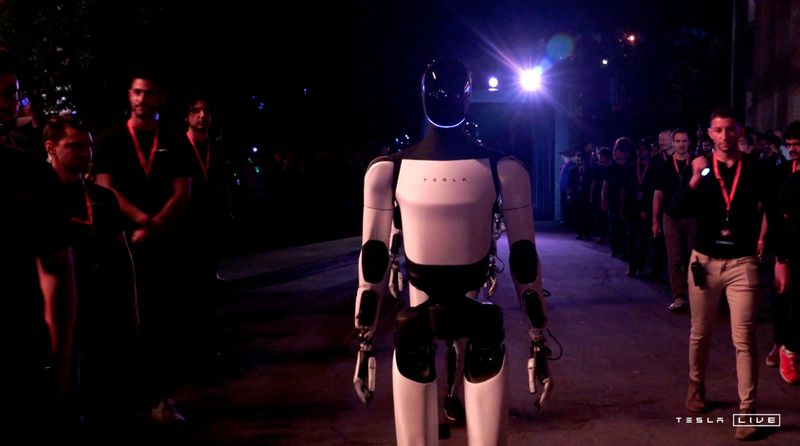Artificial Intelligence Transitions to Physical Applications, Tesla’s Opportunities Expand
As artificial intelligence transitioned from digital interfaces to physical applications, Tesla Inc (NASDAQ:) is venturing into a rapidly growing frontier, embodied AI. According to Morgan Stanley (NYSE:) analysts, the focus is shifting from electric vehicles to Tesla’s innovations in robotics and AI, including its full self-driving (FSD) advancements, robotaxi milestones, and humanoid robots like Optimus.
Analysts believe that Optimus, Tesla’s humanoid robot, could become one of the company’s most valuable ventures, despite its absence from current valuation models. This signals a broader trend in the “embodied AI” space, encompassing machines capable of navigating and interacting with the physical world, from drones to autonomous vehicles.
The adoption of embodied AI is leading to concerns over supply chain security and resilience, particularly as key components such as actuators, sensors, and energy storage systems are often sourced from global suppliers, including those in China. Tesla’s integration of hardware and AI capabilities gives it a potential edge in addressing supply chain bottlenecks and manufacturing challenges.
Tesla’s expertise in vertical integration and its ties with SpaceX and xAI, a company founded by CEO Elon Musk, could position it as a leader in the domain. Moreover, Musk’s influence on policy discussions around autonomous vehicles could accelerate regulatory frameworks, enabling faster adoption of AI-powered technologies like robotaxis.
Analysts are revising models to incorporate the potential revenue streams from AI-driven industries, including autonomous ridesharing and intelligent robotics, redefining Tesla’s growth trajectory. “Tesla’s role in helping to ‘fill the void’ of next-gen manufacturing and supply chain will be an increasingly consequential driver of growth and shareholder value, in our opinion,” Morgan Stanley analysts said.
As Tesla remains synonymous with electric vehicles, its AI ambitions may signal a new chapter for the company, one where robots, not cars, take center stage.

